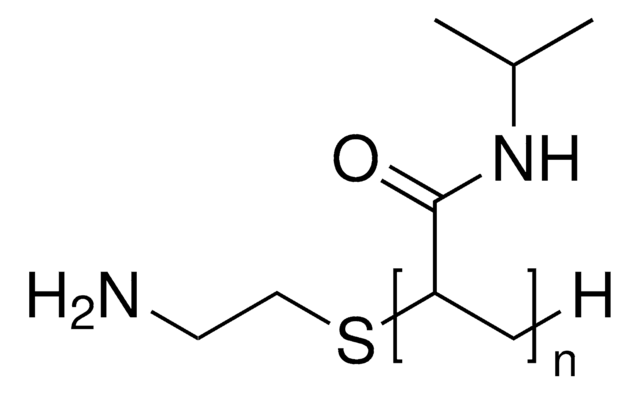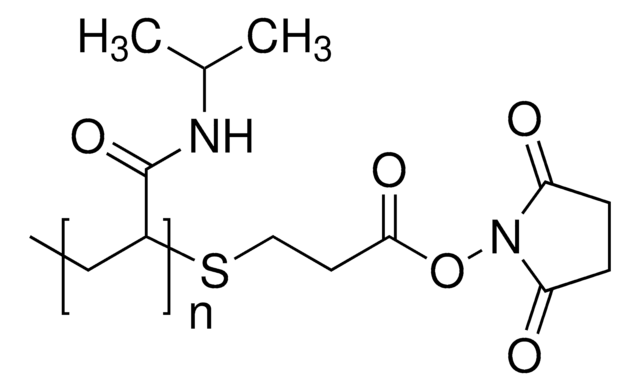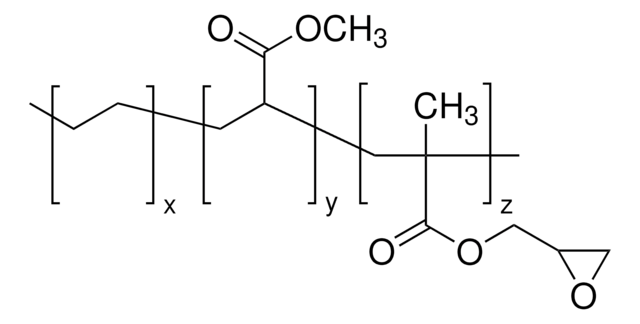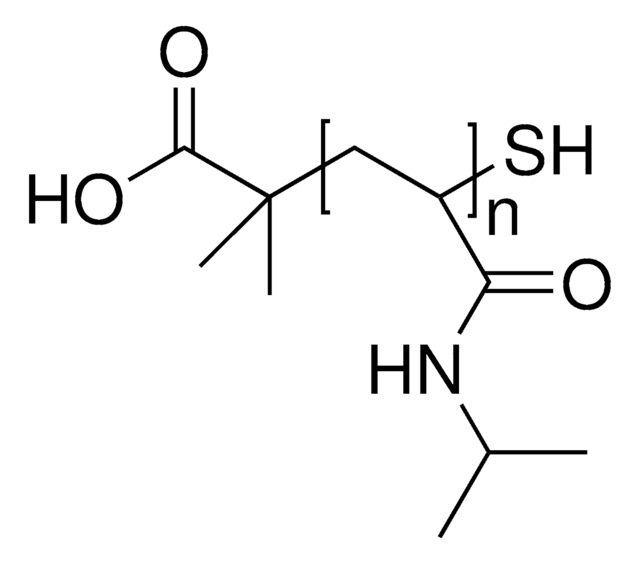724858
Poly(N-isopropylacrylamide-co-methacrylic acid)
methacrylic acid 10 mol %, Mn 60,000
Synonym(s):
Poly(NIPAM-co-MAA), Polyacrylamide, functionalized polyNIPAM, functionalized polyacrylamide, polyNIPAM
About This Item
Recommended Products
form
solid
Quality Level
mol wt
Mn 60,000
composition
methacrylic acid, 10 mol %
mp
>300 °C
Mw/Mn
≤2.5
InChI
1S/C6H11NO.C4H6O2/c1-4-6(8)7-5(2)3;1-3(2)4(5)6/h4-5H,1H2,2-3H3,(H,7,8);1H2,2H3,(H,5,6)
InChI key
BGJOTKHBFYMJST-UHFFFAOYSA-N
Looking for similar products? Visit Product Comparison Guide
Application
Storage Class Code
11 - Combustible Solids
WGK
WGK 3
Flash Point(F)
Not applicable
Flash Point(C)
Not applicable
Choose from one of the most recent versions:
Certificates of Analysis (COA)
Don't see the Right Version?
If you require a particular version, you can look up a specific certificate by the Lot or Batch number.
Already Own This Product?
Find documentation for the products that you have recently purchased in the Document Library.
Articles
Poly(N-isopropylacrylamide), or PNIPAM, is a stimuli-responsive polymer that responds to changes in pH and temperature and has a LCST around 32 C.
Tissue engineering has become a key therapeutic tool in the treatment of damaged or diseased organs and tissues, such as blood vessels and urinary bladders.
By altering the physicochemical properties, smart or intelligent drug delivery systems can be designed to deliver therapeutic molecules on-demand. Learn more about the application of stimuli-responsive materials in drug delivery.
By altering the physicochemical properties, smart or intelligent drug delivery systems can be designed to deliver therapeutic molecules on-demand. Learn more about the application of stimuli-responsive materials in drug delivery.
Our team of scientists has experience in all areas of research including Life Science, Material Science, Chemical Synthesis, Chromatography, Analytical and many others.
Contact Technical Service





